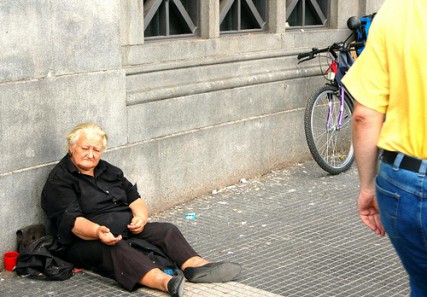CONTACT US | TALK BACK | SUBMIT TIP | SUBMIT PHOTOS/VIDEOS | CORRECTION
This is the fourth piece in a continuing series

Early on a piecemeal transformation, rooted in socialism, began in order to establish a utopian society. The English playwright and poet Oscar Wilde lauded a societal utopia:
Under Socialism . . . there will be no people living in fetid dens and fetid rags, and bringing up unhealthy, hunger-pinched children in the midst of impossible and absolutely repulsive surroundings. . . . Each member of the society will share in the general prosperity and happiness of the society, and if a frost comes no one will practically be anything the worse.
However noble and well intended the utopian dream of socialism was, the results seem to suggest the condition of the working classes under capitalism grew better and, as wealth grew, the standard of living increased for all.
Socialism cannot bring us the utopia it promises. Moving away from the original form of American government, one slips on the remains of private property and freedom and lands in the lap of a powerful central government. The slide has occurred so slowly that many have failed to recognize the direction in which we are headed. Although some of the greatest political minds have warned us that socialism means slavery, we have forgotten the warning and moved in the direction of socialism.
F.A. Hayek in his book, “The Road to Serfdom”, coined a phrase, “creeping socialism” to describe the “Progressives” slow move away from individual freedom and liberty in a capitalistic society to a powerful central government and a planned economy under socialism. Hayek was concerned about state control over the means of production in the Tennessee Valley Authority created in the New Deal by Franklin Roosevelt.
The New Deal, intending to be compassionate and attempting to protect the “little guy,” took actions on behalf of the poor. It is easy to agree that voluntarily helping the poor is a good thing, but when the government redistributes the wealth to help the poor it is no longer voluntary but a theft of private property. In the name of helping the poor, the government invaded the sphere of the individual, the personal responsibility to love your neighbor as yourself, and expanded the governmental sphere through welfare, taxes, and anti-business regulations, thereby enslaving voters with handouts.
The New Dealers were concerned with the “maldistribution” of wealth, that is, too much money in the hands of those who spend and invest it. Senator Huey Long was impressed with Roosevelt’s desire to redistribute wealth and telegrammed the president his thanks. Soon thereafter he wrote President Roosevelt in the fall of 1933 the message, “My dear friend, cannot you see you must redistribute wealth. Let us do it.”
The march to socialism picked up steam in the 1960s. Lyndon B. Johnson’s War on Poverty became a battle cry. Certainly, we all want the ones who can work not to go without basic necessities and the ones who cannot work to be provided for; but the question is, “Who should provide for them?” The government? The family? The community in a voluntary action? Johnson was convinced it was the government’s responsibility and launched the War on Poverty.
About 45 years ago the War on Poverty began, but the poverty rate has not been reduced. Governmental welfare, as it is practiced, does not achieve the goal of winning the War on Poverty. President Jimmy Carter stated, “The welfare system is anti-work, anti-family, inequitable in its treatment of the poor and wasteful of the taxpayers’ dollars.”
Is there a inherit danger in a welfare state? Is it compassionate or is it detrimental to human development? In effect, does it harm the person more than it helps him? In the 1930s Verna Marie Hall realized that the distribution of benefits under Roosevelt’s Works Progress Administration harmed people more than it helped them. At first she was a great proponent of governmental entitlements. Later, she began to see that the longer people received benefits the more they adopted a subservient, helpless mindset. She concluded that the very programs that were intended to help the poor were actually enslaving them. As she researched American history she saw that the welfare state was in direct contradiction to the self-government and independence the founding fathers established.
In a welfare state the government forces citizens to help people. The compassion we show in loving our neighbor is turned into compulsion. Individual freedom to act is replaced by authoritative governmental action without our consent. Is authoritative governmental action without consent not a form of slavery; government controlling people’s lives without their consent?





